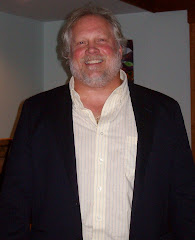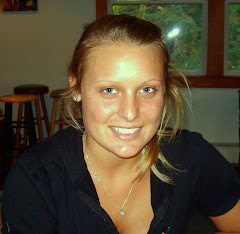Walking through the streets of Durham NH at this time of year is a beautiful experience. You can not help but notice the beautiful college campus, the bright colors of the leaves that highlight each tree before floating through the air and accumulating on top of the clean, green grass. Everywhere you look you can see numerous college students filling the streets, each of them bobbing to their own beat. All together, it is a very diverse and beautiful scene. One thing that you may not see in Durham is poverty, but that does not mean it does not exist.
This week I had the chance of interviewing a 65 year-old woman who lives in Durham and depends on the Waysmeet Food Pantry in order to survive. Her name is Gisela and honestly, I was not even planning on interviewing her today. I expected to have an interview with the head of the program, Larry Brickner-Wood. I did sit down and talk to Larry, but before I interviewed him, he told me that I should really sit down to speak with Gisela. I am so glad that I did. Her story is a great one. It is a story that I feel needs to be heard:
Gisela started depending on the food pantry at the end of August, 2007. She had just moved with her husband to Durham and has been disabled for five years. Her husband has a kidney disease that requires him to go to the hospital three times a week and he can not hold a part-time job. Initially, Gisela and her husband had enough money to get by. Then, the medical bills started to increase. They could no longer get by. With the increase in gasoline prices along with all his medical bills, they could no longer afford groceries.
"We have seen an increase in grocery prices which is unbelievable," said Gisela. "We go once a month when the check comes in and buy what we can, but it keeps getting smaller and smaller because the prices keep increasing."
Over the last year that Gisela has been counting on the food pantry, she has seen an increase in the overall number of people who depend on it.
"It is so necessary for people in order to survive to the next paycheck," said Gisela.
Gisela and her husband never expected to both be disabled within a year. They always figured that they would work until they retired. She said that they always used to contribute. When she realize she needed to depend on a food pantry, Gisela became depressed. She never thought she would have to, and for that reason, she refused to go to the food pantry for a while.
"I just couldn't comprehend that I would ever have to go to a food bank in order to get by," said Gisela.
Gisela said that her experience helped her realize that current situation can happen to anyone, and that no matter how bad things can seem, there are always people who can and will help.
"People are basically very good, and people realize that there is a need out there," said Gisela.
Gisela's interview was really powerful. She spoke passionately and the audio came out really well. I was not expecting to talk with her today, but I am very glad that I got the opportunity. Her story and her perspective of the current economic situation will add so much to my final project.
As for Larry....
Larry got interested in work that helps other people in college. He worked in local government as a town planner in Virginia. After five years he became the town manager of a small town in Virginia. He then moved to Vermont to work as a town manager and eventually ended up in Durham working as Durham's town manager. He loved it. However, after 20 years, he started to realize that he did not want to do it for the rest of his life. He started working at Waysmeet in 1997 at the age of 43. When he arrived the food pantry was located in Christensen Hall. Overtime, Waysmeet realized that more people needed to be involved in the food pantry because of an increase in the demand and use of it. Therefore, it moved to the campus ministry. Since then, it has changed a lot. People who depend on the pantry can now come when it is not technically open and they can still be served.
"There are always volunteers here to help people," said Larry.
"I love to work here for lots of reasons," said Larry. "It is one small way that you can right some injustices in the world."
One of Larry's favorite aspects of working at Waysmeet is the opportunity he has to work with student volunteers.
"I see so much energy and passion [in the students] for change in the world and it humbles me everyday," said Larry.
Larry said he loves the fact that student volunteers at Waysmeet are given the opportunity to realize that poverty even exists in a small town like Durham and that they are also given the opportunity to ask why.
"We are one of the wealthiest towns in one of the wealthiest states and there is still poverty here and that is appalling to me," said Larry.
As for technology...
Before taking this class, I thought that I knew a lot about technology. As a child of the computer age, I felt as though I had everything pretty much down. However, I have recently realized that I was wrong. I have realized that technology can be a really stressful element of multimedia. While it allows you to do things that print journalism can not do, it can also make it possible for you to age at a more rapid rate. However, I have already come to realize that there are some things that you just can not stress out about. For me, technology is one of them. I think that it is just something that takes some getting use to, and I can already see myself getting better. I feel as though, as individual journalists, we have no chance but to learn how to master the beast now. In the future, this is going to be how stories are told and how people get the news. As an industry, I wish that journalism could stop and turn back. I think that people may need reasons to get them reading. If reading was a person's only way to get the news, maybe the illiteracy rate would not be as high. Maybe people need a little push to get going. Nonetheless, it is obvious that in this new age of technology, journalism has given in to the fast shots of photos, videos and audios in order to capture the short attention span of the majority of people and in order to get news and stories out to the public. If this is the case, then if we want to continue as journalists, we must follow, and although it can get stressful and there are many more obstacles that stand between a journalist and her deadline, I am confident that if we learn now and start making the mistakes early, we will be masters of this new age journalism when it becomes a necessity.
Wednesday, October 15, 2008
Subscribe to:
Post Comments (Atom)







No comments:
Post a Comment